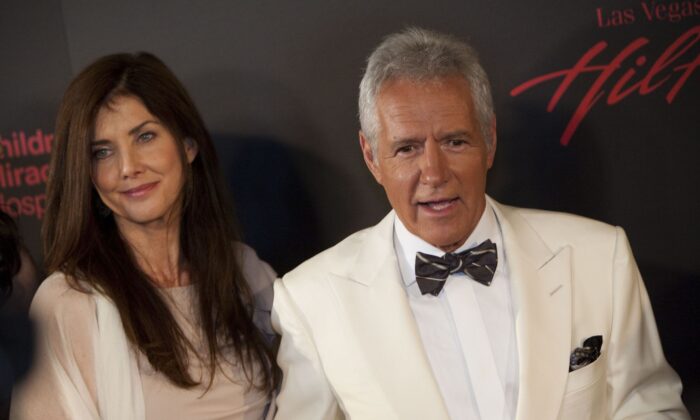Tension Grows at Lansing ‘Stop the Steal’ Rally as Race Called for Joe Biden
“Jeopardy!” host Alex Trebek, who hosted the popular game show for several decades, died at age 80 after a bout with pancreatic cancer.
A spokesperson for the ABC show confirmed the news to several outlets on Sunday.
“Jeopardy! is saddened to share that Alex Trebek passed away peacefully at home early this morning, surrounded by family and friends. Thank you, Alex,” the show announced on Sunday.
In 2019, Trebek shared details of his fight against stage four cancer.
“Just like 50,000 other people in the United States each year, this week I was diagnosed with Stage 4 pancreatic cancer,” he told his fans at the time. “I plan to beat the low survival rate statistics for this disease. Truth told, I have to because under the terms of my contract, I have to host Jeopardy for three more years.”
It came after he revealed his cancer diagnosis in March of 2019, saying he would fight the disease. The news of the diagnosis came as he signed a contract to continue hosting “Jeopardy!” until 2022.
But at one point he noted that his odds of surviving late-stage cancer were slim—at just 7 percent.
In July 2020, Trebek said he was undergoing experimental treatments and also published a memoir, “The Answer Is …: Reflections on My Life,” and donated the proceeds to charity. He said that he would stop cancer treatments if they didn’t work.
“Yesterday morning my wife came to me and said, ‘How are you feeling?’ And I said, ‘I feel like I want to die.’ It was that bad,” he was quoted by ET Canada as saying. “There comes a time where you have to make a decision as to whether you want to continue with such a low quality of life, or whether you want to just ease yourself into the next level. It doesn’t bother me in the least.”
“I’m doing well,” he also said in a video. “I’ve been continuing my treatment and it is paying off. Though it does fatigue me a great deal, my numbers are good. I’m feeling great. In fact, during the break from the studio, I even wrote a book that will be coming out July 21st.”
Last year, Trebek said that chemotherapy is causing him to form sores around his mouth, making it hard to speak.
“I’m sure there are observant members of the television audience that notice also, but they’re forgiving,” Trebek told CTV, referring to the chemotherapy symptoms.
“But,” he added, “there will come a point when they (fans and producers) will no longer be able to say, ‘It’s OK.’”
Focus News: ‘Jeopardy!’ Host Alex Trebek Dies at Age 80 After Cancer Battle
The Unknown Warrior: A Poignant Reminder for a Grieving Nation
